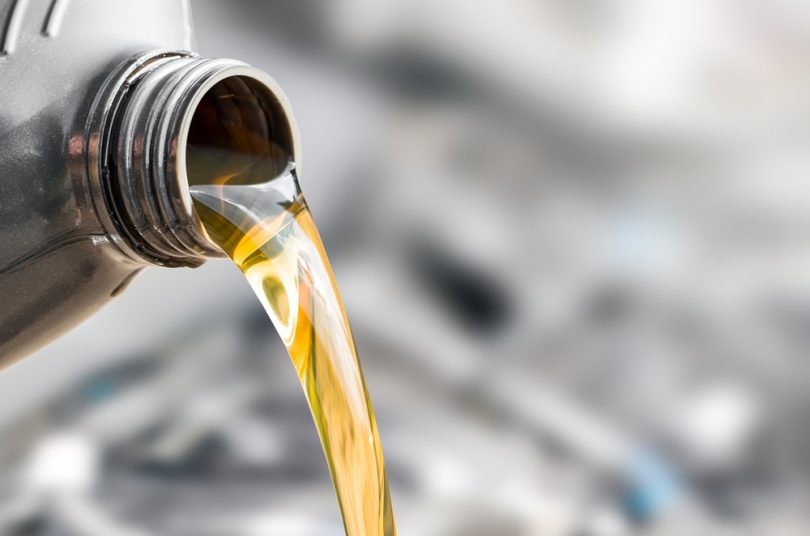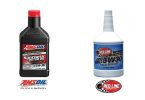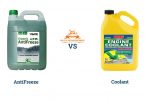You have a variety of choices when selecting the most suitable oil for your vehicle’s engine. Although the majority of engine oils meet appropriate standards their general and particular properties can differ significantly. Due to incompetence, low-quality engine oils are often placed on the market. Unfortunately, for the unfamiliar car owner, high-quality motor oil and low-quality motor oil will look the same.
What Oil Does My Car Take – Criteria for Car Oil Selection
Using inappropriate oil will lead to expensive engine damage. Choosing the correct oil for your car can be difficult with too many alternatives available. All you need to know about the oil your car requires is mentioned below.
1. Engine Health
Knowing your car’s engine model and the manufacturer is the first step in selecting the best fuel oil. Oil with a higher performance rating is needed for a high-performance engine. Engines are continually evolving, with recent models delivering higher performance while consuming less fuel. To maintain pace with these increased technological demands, specialized oils have been produced.
2. Climate Condition
If you live in a warm or cold environment or drive on unpaved or paved roads, you should consider the driving conditions you encounter regularly. Different circumstances will place pressure on your car in various ways, such as requiring repeated engine oil replacements. When choosing what kind of motor oil is best for you, take into account the circumstances where you drive and live.
3. Viscosity
When evaluating engine oil brands, you can find confusing labels on the package with letters and numbers. The viscosity grade of the oil is represented by these symbols, which is a calculation of the oil’s resistance to motion. When looking for the best engine oil, it’s important to consider this factor, as well as the environment and driving conditions.
The viscosity of the engine oil is determined by two numbers. The first number is accompanied by the letter ‘W,’ which represents Winter. This indicator is connected to how oil streams when it is cold when starting an engine. The second number describes how oil moves at typical working temperatures. At lower temperatures, thin and low viscosity engine oils circulate more quickly to protect engine components. Oils with a thicker and higher viscosity are usually stronger at retaining film durability and protecting engine parts at high temperatures.
4. Engine Oil Type
When you know the car’s manufacturer and engine model, you should choose between mineral and synthetic engine oil. Since base oils account for 80 to 90% of a motor oil’s structure, picking the appropriate one is important. Each kind of oil has advantages and disadvantages, so understanding which one is right for your vehicle and driving style is essential.
5. Oil Standards – API
If you pay attention to the label, you will see different standards for engine oil defined by acronyms like ILSAC, API, or ACEA. This indicates that the oil satisfies or exceeds the specifications defined by these organizations. Specifications are crucial because they reveal the oil’s quality and performance.
API (American Petroleum Institute) is the most widely used standard in the United States. The API standard includes two symbols: “donut” for the API and “starburst” for the API Certification. The “donut” is separated into three sections, with the upper section representing the oil’s quality rating, the middle describing the oil’s viscosity, and the bottom half indicating whether the oil has potential for energy preservation. Performance ratings are represented by an “S” letter for gas engines while the “C” letter is used for diesel engines. The letter “S” represents a “service,” while the letter “C” represents “commercial“.
What You Need to Know Before Changing Your Oil

Checking the oil will help you figure out whether you need to replace it and how much oil you have in the vehicle. Numerous factors affect when you need to change your oil. Most experts suggest replacing it every 3,000 miles, but modern vehicles in ideal driving conditions may go up to 5,000 miles, while older vehicles or vehicles that often run in harsh cold or heat need to change it every 1,000 miles.
In addition to maintaining track of your mileage and the schedule of your last oil replacement, regularly monitoring your vehicle’s oil amount and condition will aid a lot in deciding when to change your oil. First, you need to locate the oil dipstick in your car to measure the amount of your oil. Take the dipstick from its tubing and scrub it out with a clean cloth after your engine has been turned off for at least 10 minutes. After that, put the dipstick back into the tube and take it out again. If the oil creates a sticky stain or smells like diesel, you must replace it as soon as possible because you are driving with contaminated oil.
Types of Motor Oil
The right type of engine oil for your car is determined by several conditions. Many are external effects such as your region, driving behavior, or even the condition of your car. Other considerations are determined by the type of engine in your car and the manufacturer’s requirements. You’ll find detail on different varieties of motor oil in the sections below.
1. Conventional Oil
The most widely used kind of oil is conventional motor oil. It’s best suited for old-model and light-duty vehicles with low or medium mileage and a straightforward engine configuration. It’s refined to extract impurities before being mixed with various chemical additives. These chemicals include sludge-neutralizing detergents, few antioxidants that prevent metal oxidation, and anti-foam products that prevent air pockets. Conventional motor oil is the most affordable motor oil available.
2. Full Synthetic Oil
Full synthetic motor oil is recommended for vehicles that need maximum performance and viscosity. Full synthetic motor oil has a higher viscosity, is resistant to oxidation and heat degradation, and assists in the prevention of sludge formation. It also aids in fuel consumption and can also boost a car’s horsepower by lowering engine friction.
Since full synthetic motor oil is three to four times the price of standard oil, consult your mechanic to see if it’s the best choice for your vehicle. Full synthetic oil could be the right type of oil for your car if you live in an environment with extremely cold winters or extremely hot summers, or if you are using your car for hauling or towing. Full synthetic oil can also favor older engines, as it may help avoid dangerous sludge build-up, which some older vehicles seem to be vulnerable to.
3. Synthetic-Blend Oil
Synthetic-blend motor oil combines the ultimate experience from both types of oil. It provides many qualities of the full-synthetic oil, only at a cheaper price. This oil is developed as a combination of conventional and synthetic oils, as well as certain additives, for added oxidation resistance and outstanding low-temperature characteristics.
Synthetic-blend oil makes switching from regular to full-synthetic motor oil simple for drivers, and that’s why this kind of motor oil is highly common with today’s most experienced drivers. It’s also a good compromise for drivers who would like the additional performance and reliability of synthetic oils but don’t want to spend a lot of money on full-synthetic oils.
4. High-Mileage Oil
High-mileage motor oil is intended for vehicles with a mileage of more than 70,000 miles. Such type of motor oil can help mitigate oil intake, leakage, and oil spillage, as well as smoke and pollution in older engines. This oil incorporates additives and various chemical boosters that can burst external and internal gaskets and O-rings, potentially minimizing oil leakage and combustion in older engines. Mechanical defects or excessive wear can not be repaired with high-mileage oil. However, if your car has been well-maintained and is operating and working well, a high-mileage motor oil could be the best option for extending the life of vital engine components. It has the potential to keep your car going for much longer than anticipated. High-mileage oil can be made from conventional, full-synthetic, or synthetic-blend oil and would be priced similarly to those oil types.
Conclusion
Consider your driving habits when buying motor oil for your vehicle. Motor oil needs to work effectively and to be changed more often in rough driving environments, such as on dusty, muddy roads. If the motor doesn’t achieve maximum temperature range regularly, it won’t be able to burn off water moisture that could cause sludge to develop. Always check the user manual to see which motor oil is advised for the best performance of your car.
FAQs
1. What kind of oil for my car if it’s a modern one?
Ans. Most modern vehicle engines work with 5W30 or either 5W40 oil. Modern oils provide a low viscosity, which implies they are thinner, allowing the engine to rotate more efficiently and allowing the oil to flow faster around the motor after it is started.
2. What oil for my car if it’s an old one?
Ans. Full-synthetic motor oils are a good option for older, heavily used cars. They are great for lubricating engine parts since they work much smoother than other motor oils. They also improve your car’s fuel efficiency, lower engine temperature, and extend the lifespan of your vehicle.
3. Can I mix different types of oil?
Ans. The fact is that combining different forms of oil won’t hurt your engine in the long run. The majority of semi-synthetic and synthetic motor oils are built on standard oil and are interchangeable. Nowadays, as far as various standards are concerned, combining them is not something that can hurt your engine.
4. What motor oil to use if it’s a high mileage car?
Ans. The high-mileage oil has been specifically designed for higher-mileage cars and their specific requirements. This motor oil contains additives that help protect against degradation and increase overall efficiency.










Leave a Comment